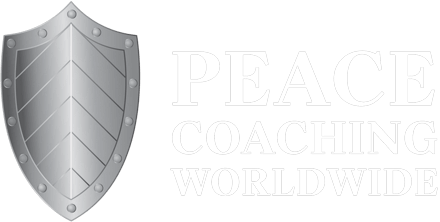Our Coaching Philosophy
Nancy and Kristen have both been master’s-degreed, trained, clinical therapists and have made the transition to life coaching for several reasons. When we were studying the transition and differences between therapy and coaching, we came across a statement that suggested that therapy looks to your past and has an ultimate goal of healing for your present. It goes on to say that coaching looks to the present to improve the future through things like goal-setting and tools. We believe that there can be value and applications for both perspectives, and do not limit ourselves to one or the other.
Our original theoretical base is called Bowen Family Systems Theory.
Murray Bowen was a pioneer of family therapy and a psychiatrist between the 1930s and his death in 1990. His teaching on concepts such as enmeshment, emotional triangles, and the differentiation of self are known and accepted in the coaching and clinical psychotherapy worlds . We use these concepts to inform how we see relationships both with others in the external world and with our own internal family members as Internal Family Systems (IFS) would inform. By looking at our relationships and the reactions that we have in them, we can learn to see ourselves and our wounds in a new light. This new insight can transform how we feel each day.
We do not arrive where we are in a vacuum. Our past teaches us how to be in relationship with each other and the world. Growing yourself up involves confronting what you were taught by your well-meaning, non-malicious, yet imperfect parents, siblings, grandparents etc., and determining what you really believe, now, after having collected data for several years.
The answers to all of these questions inform how you will feel and conduct yourself for the rest of your life.
It begins with the questions:
Beyond that, consideration must also be given to what your mind and body have experienced in the past as well. Trauma, for example, is carried in the body, and if it is not released, or healed, we are fighting a battle that is difficult or impossible to win. Entrenched neuropathways that have been reinforced for years (i.e. depression, anxiety, among other things) are not usually able to be changed or overcome simply with mind-over-matter or goal-setting techniques. By holding the concept of time loosely, looking at past, present, and future as all a part of the same story, we can influence how we feel in the present and guide ourselves to a more peaceful future.
The story we tell ourselves is vitally important to how we feel. If you tell yourself repeatedly that you are not good enough, for example, you will have a hard time feeling self-confidence. If you tell yourself the story that you are amazing at a certain task, and then experience a setback or perceived failure, your self-image is shattered.
There are more accurate both/and kinds of truths you can tell yourself to gain the peace you are looking for inside, they just can be hard to find. No matter how many people we have talked to in our careers, all are looking for the same thing. The following quote sums it up quite nicely.
We aren’t naïve. We know there is going to be trouble, noise, and hard work in this life. We just want to feel OK while we are going through it. The story we tell ourselves is a vital ingredient for finding that peace!
There may be stories that you carry that aren’t yours. We have witnessed people as they heal their darkest wounds. Things that may not even make logical sense and may seem fantastical or hard to believe. The results in the feelings of people who have gone through these transitions are undeniable, however, and while we use research-based techniques, they may seem odd or strange to someone who has not seen how effective they are. We do not limit our coaching to things we can always fully explain, understand, or know. Neuroscience itself cannot yet fully understand or explain things that we already know work. Being able to sit in the discomfort of uncertainty can be the key to unlocking the future’s potential. Techniques like Brainspotting (BSP) and Internal Family Systems (IFS) are evidence-based treatments, shown to be effective in helping people process trauma and deep feelings. We may not understand everything about how and why these techniques are so effective, but we cannot argue with the results.
Clients that wish to be curious and courageous with these new kinds of methods can find healing and results that cannot be achieved with things like traditional talk therapy or coaching tactics.
If you would like to learn more about the methods we use, please visit our resource page for links to research and more information.

